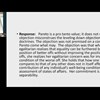envision
Belief Revision for Growing Awareness
Mind 130(520), 2021 Abstract The Bayesian maxim for rational learning could be described asconservative changefrom one probabilistic belief orcredencefunction to another in response to new information. ). But can this conservative-change maxim be extended to revising one’s credences in response to entertaining propositions or concepts of which one was previously unaware? The economists,) make a proposal in this spirit. Philosophers have adopted effectively the same rule: revision in response to growing awareness should not affect the relative probabilities of propositions in one’s ‘old’ epistemic state. The rule is compelling, but only under the assumptions that its advocates introduce. It is not a general requirement of rationality, or so we argue. We provide informal counterexamples. And we show that, when awareness grows, the boundary between one’s ‘old’ and ‘new’ epistemic commitments is blurred. Accordingly, there is no general notion of conservative change in this setting.
Expert deference as a belief revision schema
in Synthese (2020) AbstractWhen an agent learns of an expert’s credence in a proposition about which they are an expert, the agent should defer to the expert and adopt that credence as their own. This

Future Barometer: The concerns and expectations for the future in Sweden, Denmark, Poland and Ukraine
This project will aim to understand the public's future-oriented attitudes in different contexts in order to understand how to better strengthen societal resilience.
Ghost Platform at September Sessions: Dirty details of the clean startup chime
Place: Institute for Futures Studies, 4th floor, Holländargatan 13, 111 36 Stockholm Listening Session And Drinks The Institute for Futures Studies hosts the premiere of a new 15-minute sound work. Regist
On the contagiousness of non-contagious behavior: The case of tax avoidance and tax evasion
Pp. 315-336 in The Benefit of Broad Horizons: Intellectual and Institutional Preconditions for a Global Social Science, edited by Hans Joas and Barbro Klein. Leiden: Brill.
Endogenous Norm Formation Over the Life Cycle – The Case of Tax Evasion
Department of Economics, Uppsala University, Working paper 2011:13.

Richard Arneson: Should we reward the deserving? Some puzzles
Do plausible fundamental principles of justice incorporate the idea of rewarding the deserving? Utilitarianism is famously indifferent between a world in which saints fare badly and scoundrels fare we
War Policies and Migration Aspirations in Russia
Delmi Report 2024:11 Summary This report investigates how migration aspirations within the Russian population have evolved following the full-scale invasion of Ukraine by Russia in 2022. It primarily fo
‘Ukraine’s Cause is Ours!’ Diaspora and Migration in Swedish Parliamentary Debates, 2014–2022
Nordic Journal of Migration Research 2025 vol 15, issue 2 Abstract The annexation of Crimea, the subsequent insurgency of Russian-backed separatists in the Donbas region of Ukraine in 2014 and the curren
How Large Will the Ukrainian Refugee Flow Be, and Which EU Countries Will They Seek Refuge In?
Delmi Policy Brief 2022:3. Abstract Three weeks after the Russian invasion of Ukraine more than three million people have fled the war. Knowledge and predictions on the flow of migrants are important for








